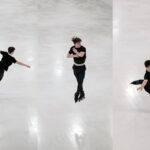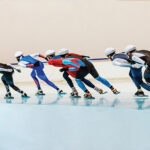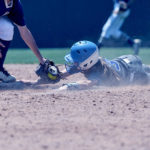Going for gold starts with breakfast: Nutrition advice for athletes
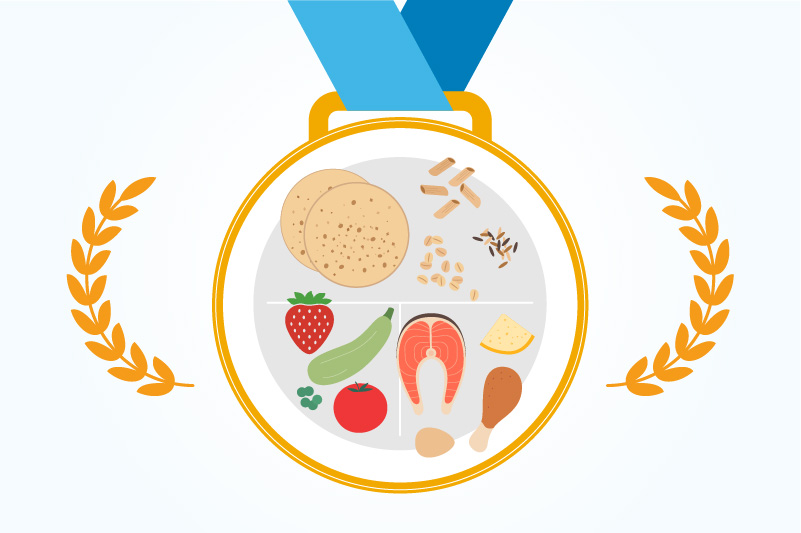
As they speed-climb 49-foot walls or spring across narrow balance beams, athletes rely on nutrition to provide the energy they need to achieve their dreams. Sports dietitian Laura Moretti Reece offers all athletes this simple nutrition advice:
1. Eat enough.
Food is fuel, says Reece of Boston Children’s Female Athlete Program. Athletes need fuel for training, competing, and simply living their lives. This brings Reece to her second and third pieces of advice:
Nutritional fuel sources
Carbohydrates
Important for: energy
Examples: bread, pasta, rice, fruit
Protein
Important for: power
Examples: eggs, cheese, yogurt, meat, fish
2. Eat throughout the day.
3. Include carbohydrate, protein, and fat in every meal.
“Athletes are in a constant cycle of taking in fuel, training hard, refueling, and training again,” says Reece.
You don’t have to be an elite athlete to need fuel. Like the strength of your muscles and efficiency of your lungs, nutrition is an essential component of athletic success.
Nutritional variations by sport
Any athlete needs both carbs and protein. However, depending on their sport, different athletes have different nutritional needs.
Endurance athletes like marathoners, triathletes, and long-distance cyclists use huge amounts of energy for hours on end. “The longer an athlete exerts themself, the more carbs they need,” says Reece.
Power athletes, such as sprinters, breakdancers, and equestrians, draw on bursts of energetic strength. “These athletes need protein to build muscle and maximize power,” she says. “However, they still need carbohydrates for energy.”
A winning nutrition plan
How can athletes keep their bodies running well as they strive for greatness? Reece offers some basic guidelines:
In training
Start each day with a balanced breakfast and eat every few hours throughout the day. Be sure to include carbohydrates and protein in every meal. Whole grains take longer to digest than simple carbs and provide longer-lasting energy. They’re a great option in the days leading up to a hard practice or competition.
Race day, gearing up
Three to four hours before the big event, take in a balanced meal with a focus on carbohydrates.
“Eat smaller snacks the closer you get to ‘go’ time,” advises Reece. Twenty minutes before the event, have 20 to 30 grams of simple carbs. “Think granola bars, pretzels, gels, and energy chews.”
And they’re off!!
Endurance athletes need to replenish their energy with easily digestible carbs every hour (and possibly more) to stay on top of their game. Gels, sports drinks, and granola bars are good options.
Over the finish line
After a competition of any kind, refuel with a carbs-to-protein ratio of 3-to-1. Think chocolate milk and yogurt with fruit.
If this seems like a lot of carbs, consider this: carbohydrates before an event improve performance. A mix of carbs and protein after exercise promotes muscle recovery. It also lays the foundation for success in your next competition.
Nutrition takeaways for real life
Don’t worry about making each meal perfect. After all, Reece points out, most Olympic athletes don’t have personal chefs preparing impeccable meals for them. It’s OK to give yourself some wiggle room in your aim to eat balanced meals throughout the day.
To demonstrate what a balanced meal looks like, Reece points to the Athlete’s Plate®, a model developed in collaboration with the U.S. Olympic Committee. The Athlete’s Plate serves up a visual guide of nutrition at various levels of training, from moderate training, intense training, to days of rest.
Moderate training
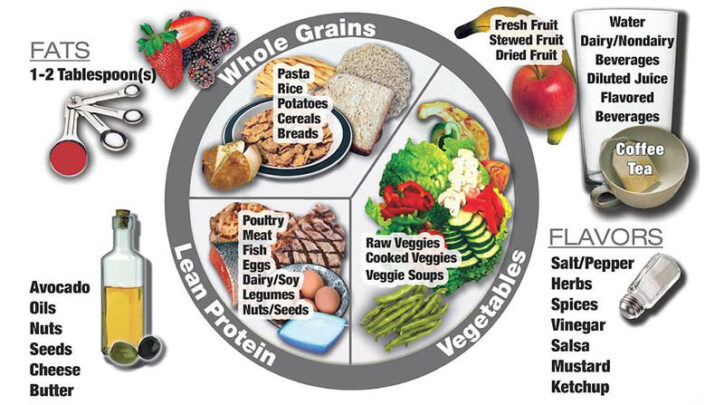
Hard training
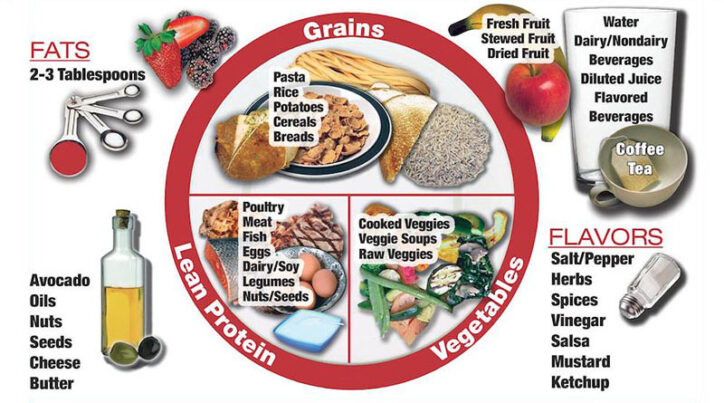
Be careful, however, to consume nutrition advice with caution. Many of the diets on social media have more to do with “likes” than science. When in doubt, refer to the Athlete’s Plate.
Can an athlete rely on their own hunger signals to know when it’s time to eat?
“Yes and no,” says Reece. Rigorous training and some medications can suppress hunger. Your body may need fuel to recover from one event or prepare for another, even when your hunger is on mute.
“Be strategic and plan ahead,” she suggests. For instance, if you have a hard practice or competition coming up, start your day with a balanced breakfast, be sure to keep refueling throughout the day, and include a mix of carbs and protein soon after you’ve finished.
In other words, eat like a champion.
Learn more about the Female Athlete Program and Sports Medicine Division.
Related Posts :
-

From injury to backflips: A path to recovery for gymnasts
Gymnasts can create the illusion that gravity doesn’t exist. As they spring from one acrobatic skill into the next, ...
-

Jumping higher, spinning faster: Max’s figure skating story
Thousands of fans around the globe have watched it, but very few people can do it. The quadruple Salchow, also ...
-

Relative energy deficiency in sport (REDs): When athletes run on empty
The strength, skill, and speed of Olympic athletes help the rest of us understand human potential in a new light. ...
-

Athletes and fatigue: Why am I so tired?
Working out can boost physical and mental energy. Yet sometimes, athletes feel more fatigued than energized. "Feeling tired after a ...



